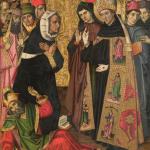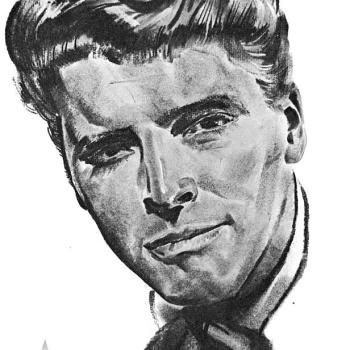In Brazil, this legacy is also obvious. Evangelicalism—specifically in its Pentecostal form—has gone from 9% to 20% of religious identification in only a few decades. People of this persuasion overwhelmingly support current Brazilian president Jair Bolsonaro, who had himself baptized in the Jordan a few years ago—a clear demonstration of solidarity with evangelical beliefs. This rise has led to an increase in people’s identification as “conservatives,” but more importantly it has meant the birth of policies friendly to American dominance—extraction of natural resources with its concomitant damage to indigenous communities, free trade, and military influence. Much the same could be said about recent developments in the Philippines, where Ricardo Duterte has won broad (including evangelical) support (though his attacks against the Catholic Church and religion more generally have also offended some Protestants). Duterte, of course, is something like Donald Trump unbound—he’s a man who makes our president look penitent, eager to apologize.
Recent events in Bolivia further draw out these connections. This week Evo Morales found himself ousted from power in what some are calling a “coup.” Best known, perhaps, for his work on behalf of the country’s indigenous poor, Morales has broadly been regarded as the last of Latin America’s “Pink Tide” presidents to remain in power. Opponents regard him as a would-be dictator who fixed recent elections. These details, important as they are, concern me less here than do some of the details about what has arrived in the wake of his resignation.
For starters, Bolivia sits atop notable lithium reserves—reserves likely to be opened up to mining by multinational corporations by the country’s new rulers. Anti-indigenous sentiment is growing. Some suspect US involvement in his overthrow, especially since some of those who participated seem to have spent time in a US operative training school. The new interim president has described herself as a “proud Christian” (I cannot say, at this point, whether this means she is an evangelical, though the phrasing suggests that that’s a distinct possibility); she has also expressed some fairly-strident anti-indigenous views, calling some natives “satanic” in one tweet.
Evangelical connections to the new government are more obvious, however, in the figure of Luis Fernando Camacho, a devout evangelical with ties to powerful, resource-rich elites. Once again, we see a connection between evangelical politics in the Global South and liberalization of national resources (which typically entails pushing aside indigenous people who would otherwise occupy the land):
Known as “El Macho,” the opposition leader is openly racist, misogynist and unapologetically represents the interests of the elites in his department and the country. Using religion, especially evangelical belief, Camacho talks with a Bible in his hand and pulls on the Bolivians religious beliefs to argue that Morales is against them.
This has also been instrumentalized to push for political persecution under the name of God, repeatedly saying they will “punish” their political adversaries, going as far as tweeting on Oct. 30 that like former drug kingpin Pablo Escobar they will “write down the names of the treacherous people of this town,” in order to carry out such punishment.
[…]
In contrast with Morales humble beginnings, Camacho comes from a wealthy family, whose money came from the capitalization and contracts with the state made since 1989 linked to insurance companies and pension funds, been an active figure in the formation of the private Administrators of pension funds (AFP) in 1995, during neoliberal regimes.
Subsequently, Camacho’s father Jose Luis Camacho Parada founded the company SERGAS that signed an exclusivity agreement with the mayor of Santa Cruz in 2003 to make 5,000 gas connections in the city. While his stepbrother, Jose Luis Camacho Miserendino, leads a large corporation regarding life insurance and investments, with hundreds of accusations of defrauding clients.
The whole family, including Luis Fernando Camacho, has been involved in the Panama Papers scandal through the registry of three offshore companies: Medis Overseas Corp., Navi International Holding, and Positive Real Estates. (“Luis Fernando Camacho, Bolivia’s Bolsonaro”)













